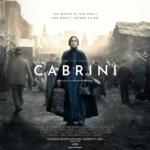I am posting this article from the Washington Post as a reminder of how Cardinal McCarrick took hold of drafting the sexual abuse policy adopted by the U.S. Bishops at their June 2002 meeting. I have bolded some of the more interesting observations made by the authors, Carlyle Murphy and Alan Cooperman — about McCarrick’s ‘zero tolerance policy’; his ‘not tainted by scandal’ record; his filling the ‘leadership vacuum’; and how he would want ‘wiggle room’ in cases where the victim was not a child but an adolescent.’ The remainder speaks for itself as well.
Deal Hudson, Publisher/Editor, The Christian Review.
Vatican’s Man of the Hour
By Caryle Murphy and Alan Cooperman
Washington Post, April 28, 2002
Resplendent in their red hats and elegant black robes, the American cardinals stepped into the Roman sunshine and swept down the stairs of the fortresslike Pontifical North American College. Most passed in silence before a gaggle of TV crews and boarded a shuttle bus to their next meeting.
Cardinal Theodore E. McCarrick was in no hurry, however. On a shady patch of grass off to one side, the 71-year-old Washington archbishop chatted amiably with reporters last Tuesday. After a half-hour, his press secretary gently stepped in to warn him that he had to move on — or he might miss the bus.
At a time when many leaders of the U.S. Roman Catholic Church have been criticized as arrogant, secretive and uncaring, McCarrick has given the scandal-battered institution what it so badly needs: an attractive public face.
Assuming the role of leading spokesman for the U.S. cardinals during their meetings with Pope John Paul II on the sexual abuse crisis, McCarrick came across to many as candid, compassionate and committed to strong reform. In one interview after another, he spoke of a uniform national policy of “zero tolerance” toward priests who molest minors.
“I think he has emerged as a national leader, and I thought his voice was the most sensible voice,” said Scott Appleby, director of the Cushwa Center for the Study of American Catholicism at the University of Notre Dame. “He does get it, and he understands the depth of the problem and the need to address it transparently. . . . If his style of leadership were emulated, I think the church would be in better shape.”
But at times it seemed that McCarrick’s public outspokenness was greater than his influence behind the scenes. A few hours after he told journalists that the U.S. cardinals had agreed on a “one strike you’re out” policy toward priests who abuse children, the cardinals issued a final communique that did not go that far. And though he was one of the four men who drafted the communique, McCarrick did not seem to realize, until a reporter pointed it out, that the document did not contain any reference to lay involvement in disciplinary decisions.
“We had it in there last night, but words are in and words are out,” he said, momentarily flustered. “We certainly want to tell the laity they must have a role.”
McCarrick’s political skills will be put to the test over the next six weeks. He will be actively involved in drafting proposals on sexual abuse policy that will be presented to the nation’s nearly 300 active bishops at their June 13-15 meeting in Dallas. The bishops’ challenge will be to adopt a policy tough enough to satisfy Catholics angry about past leniency toward priestly abuse, yet acceptable to Vatican officials who are protective of priests’ due process rights.
McCarrick, a former university president who speaks five languages, arrived in Washington 16 months ago after serving 14 years as archbishop of Newark. Although the Rome summit gave him a new prominence, he is a veteran of politically sensitive missions. The New York-born prelate has made Vatican-sponsored trips to China, Vietnam and Eastern Europe, among other places, and he has been an advocate for the church on human rights, religious freedom and Third World debt relief.
While in Newark, he also won favor with the pope by ordaining more priests than any other U.S. bishop. And he has been a prolific fundraiser, demonstrating an ease with the rich as well as the poor.
At last week’s meeting of the U.S. cardinals, McCarrick filled a leadership vacuum. Traditionally, the most influential voices in that group have been those of the most senior U.S. cardinal, currently Boston’s Cardinal Bernard F. Law, and the archbishop of New York, now Cardinal Edward M. Egan.
But Law and Egan are embroiled in the sexual abuse scandal, facing criticism for failing to report priests’ misconduct to civil authorities and for shuttling the priests from one parish to another. Another prominent cardinal, Roger Mahony of Los Angeles, riled the Vatican just before the summit by calling for a reconsideration of mandatory celibacy for priests.
By contrast, McCarrick does not question papal doctrine. He is a staunch defender of celibacy and the male-only priesthood. He is effusive in his praise of the pope. And he has not been tainted by the scandal.
When he arrived in Washington, the archdiocese had stringent child sexual abuse policies that had been in place for several years. They require the reporting of allegations to police and immediate suspension of the accused from priestly duties. As archbishop of Newark, McCarrick instituted similar policies there in the early 1990s.
Before that, as bishop of New Jersey’s Metuchen Diocese, McCarrick allowed a priest from Boston who had pleaded guilty to raping an altar boy to work in Metuchen parishes for seven years. McCarrick said he had been assured by the Boston archdiocese and by medical personnel that the priest was rehabilitated. The priest was not accused of sexual misconduct again. In a recent interview, McCarrick said he “would never” agree today to accept such a priest.
Although McCarrick achieved his visibility at the Rome summit in part by default, his folksy style and affable personality also played a part.
“He’s got a winsome way about him,” said the Rev. James Coriden, who teaches at Washington Theological Union, a Catholic seminary in Northwest Washington. “He’s articulate, cheery . . . and he speaks in ordinary human language, not like a lawyer. He sounds like a pastor.”
Part of McCarrick’s charm is his self-effacement. “It’s the dumb ones who give a lot of interviews,” he said last week of his propensity to talk with the news media. “I believe in the ultimate goodness of people, including the press.”
The five-point program that McCarrick wants the U.S. bishops to adopt in June includes reporting all allegations of child sexual abuse to civil authorities; placing the accused priest on administrative leave pending an investigation; having the priest undergo therapeutic evaluation; caring for the victim; and appointing a review board of lay people to advise the bishop on the priest’s future.
Yet while urging a policy of zero tolerance last week, McCarrick also sought some flexibility on that issue, introducing what some may see as necessary nuance and others as wiggle room.
McCarrick said he supports zero tolerance for future instances of abuse. But, like many bishops, he left open the possibility that some priests accused of abuse in the past might be allowed to remain in ministry if the incident took place long ago and there had been no whiff of misconduct since. He also suggested that some leniency might be appropriate if the victim was an adolescent rather than a small child.
“If the person has been diagnosed as a pedophile, goodbye. But if he hasn’t been diagnosed as a pedophile and if there have been no other incidents, do you say, ‘One strike you’re out’? I don’t know the answer to that,” McCarrick said. He added that in such cases, he would pray for guidance and “talk to the laity.”
McCarrick could well have been describing a recent case in his own archdiocese. Last month, Monsignor Russell L. Dillard, the popular pastor of St. Augustine Roman Catholic Church in Northwest Washington, was placed on administrative leave after a woman accused him of having a romantic relationship with her almost 20 years ago when she was a teenager. McCarrick has not decided Dillard’s future.
McCarrick’s high profile in Rome last week was evident to his flock, the half-million Catholics living in the District and five Maryland counties that make up the Washington Archdiocese.
“Hey, what about Theodore McCarrick? I tell you, he’s front and center!” said Andy Ellis, a spokesman for the Prince George’s County police and a Catholic. “I think it’s a positive thing.”
Although there was some griping among Newark’s 1.4 million Catholics that McCarrick spent too much time traveling and was perhaps too close to the rich and glamorous, those complaints have not followed him to Washington. In his brief tenure so far, he has won points with priests for asking their advice and showing his appreciation of their work, sometimes telephoning them to pass on a compliment. He also has made it a goal to visit every parish, hitting two or three on many Sundays.
Within weeks of his installation in January 2001, McCarrick hosted a dinner at his home for newly arrived President George W. Bush and his wife, Laura. The archbishop demonstrated his political savvy, noted one observer, by also inviting to the dinner the then-president of the U.S. Conference of Catholic Bishops.
“The really important thing to say about Theodore is that he is a collegial fellow,” said the Rev. Raymond Kemp of the Woodstock Theological Center in Washington. “He is a great believer . . . that all the guys together will make more sense out of this than a few cardinals.”
McCarrick’s performance in Rome was not without blemishes. He used a poor turn of phrase while describing the pope’s love for children, saying that “the Holy Father is turned on by children.”
“I didn’t know whether to cringe or laugh,” said the Rev. Thomas Reese, editor of the Catholic magazine America. “But when people see him on TV, they say, ‘This is an honest man who is answering the questions that are given to him to the best of his ability.’ “















God help us! Duped again. The foxes are in the hen house.